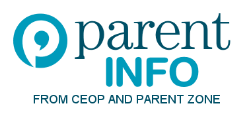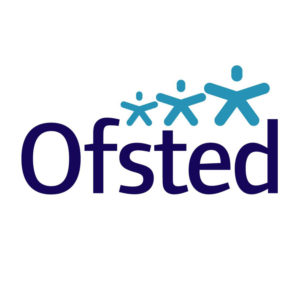Chapter contents
Children’s Guides
Every fostering service must produce a written Children’s Guide, which includes:
- A summary of what the fostering service sets out to do for children.
- How children can find out their rights.
- How a child can contact their Independent Reviewing Officer.
- Contact details for Ofsted, should they wish to raise a concern with inspectors.
- How to secure access to an independent advocate.
The supervising social worker ensures that every child receives a children’s guide at the point of placement. Because our children are of different ages, with different communication needs, we have created three different guides. You can view all three guides here on our I-SPACE website. Your children and young people might need you to read the guide with them and explain the contents.
We will make bespoke arrangements for young people who:
- Need their guide translated to another language
- Have significant speech and language difficulties
- Communicate non-verbally
Participation
Listening to children and young people – what is the role of foster parents?
It is essential that we empower our young people to share their views and have some control in their life. You can help young people feel more in control of their lives in some quite simple ways. This includes letting them make choices about the food they eat, the things they do and the clothes and personal items they buy. After all, this is part of growing up and becoming independent young adults.
Local authorities encourage young people to share their views with their social worker. For instance, at their care plan review they can say how they feel about being in foster care, and what they would like to happen. Some children will need you to help them raise things with their local authority – or with ISP – and you might need to explain decisions to them if they don’t understand.
ISP young people’s participation groups
Our ISP centres offer a range of structured activities for young people of different ages, usually during school holidays. We also have participation groups where young people can meet together to share experiences and contribute their ideas to the running of ISP. You will need to contact your local centre for details of what is on offer in your area.
For more information, see our Participation and consultation policy.
Independent Advocacy Services
Why might a child need an advocate?
You will often be the best champion for the children you care for and stand up for the child’s interests when dealing with local services such as education and health. Sometimes, however, you may not be in the best position to advocate for a young person. For instance, if they wish to make a complaint about their social worker, care plan or placement plan., you may feel unable to represent the child’s wishes and views as they may conflict with your own. An independent advocate can sometimes be the answer.
Children may also feel that adults are not listening to them or taking their views seriously. In addition, they may not feel confident enough to challenge adults on their own, or may not know the right way to make sure their views are heard and acted upon. An advocate can help them to do this.
What does an independent advocate do?
An independent advocate supports young people by making sure their views are properly represented. They might do this by helping the young person to speak for themselves or by speaking on their behalf. All local authorities are required to provide independent advocacy services to looked after children. Therefore, let the children you are looking after know that they have the right to an advocate, and help them to access this service if they wish.
How does a child or young person access an advocate?
The child’s social worker should provide written details of an advocacy service when the child is placed with a foster carer and it is a good idea to clarify these details at the placement planning meeting and to record them in the placement plan.
NYAS and Coram Voice also offer advocacy services for young people in foster care, and the young person can contact them for help directly.
Independent Visitors
It is possible that a child fostered with ISP may have an independent visitor. An independent visitor might be appointed if:
- The child has had very infrequent contact with their parents or other people who have parental responsibility for them, or
- The child has not been visited by (or has not lived with) a parent or any person with parental responsibility, during the last 12 months.
The local authority should take a range of factors into account when deciding whether an independent visitor is appropriate, including where the child is placed geographically, their communication and social skills, and their behaviour. The independent visitor’s functions are to visit, advise and befriend the child and they will therefore need to spend time with the child on their own.
Children’s Commissioner
The Children Act 2004 introduced the role of the Children’s Commissioner in England, and the Children and Families Act 2014 strengthened it further. The Children’s Commissioner has a statutory duty to promote and protect the rights of all children in England in accordance with the United Nations Convention on the Rights of the Child. In addition, the Children and Families Act 2014 gave the post holder special responsibility for the rights of children who are in or leaving care, living away from home or receiving social care services.
It is the Children’s Commissioner’s job to make life better for all children and young people by making sure their rights are respected and realised and that their views are taken seriously. The Commissioner is supported by a team of staff. Together, they are responsible for the rights of all children and young people until they are 18 years old, or 25 years if they have been in care, are care leavers or have a disability.
The Children’s Commissioner in England (since 2015) is:
Dame Rachel de Souza
Tel: 0207 783 8330
www.childrenscommissioner.gov.uk
Help at Hand – children and young people
Help at Hand is the Children’s Commissioner’s national advice service for children and young people who are in care, leaving care, living away from home or working with children’s services. The advice line is independent of the Government and exists to make sure that young people’s rights and entitlements are upheld and that their views are taken seriously.
Children and young people can reach Help at Hand by:
Calling 0800 528 0731 or
E-mailing at help.team@childrenscommissioner.gsi.gov.uk or
Completing an online form here.
Help at Hand is open between 9am and 5pm, Monday to Friday. The service is free and fully confidential, and young people can choose to contact it anonymously if they wish.



